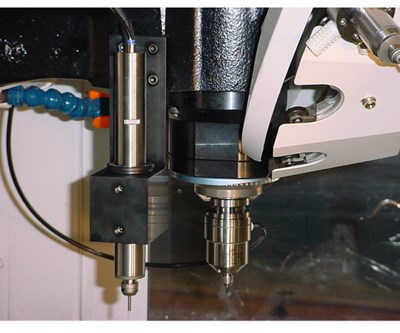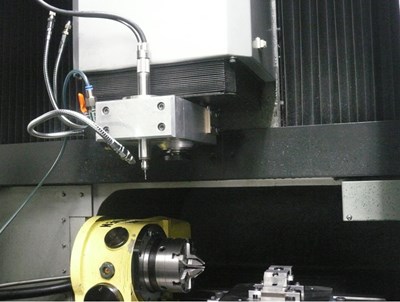March 18, 2025
The Computer Numerical Control (CNC) industry is experiencing a wave of technological innovation and market growth, driven by the increasing demand for precision manufacturing and automation across various sectors.
As industries such as automotive, aerospace, medical devices, and electronics continue to require more accurate and efficient production, CNC machines have become a cornerstone in advanced manufacturing. According to a recent report by the International Market Research Group (IMRG), the global CNC market is projected to grow at a compound annual growth rate (CAGR) of 7.5% over the next five years.

Technological Advancements Fuel Demand
One of the primary factors contributing to the rise of the CNC industry is the rapid evolution of technology. The integration of Artificial Intelligence (AI) and machine learning with CNC machinery has enabled manufacturers to optimize production processes, reduce downtime, and improve product quality. These advancements have made CNC systems more intelligent, flexible, and cost-effective.
For instance, AI-driven CNC machines are now capable of predictive maintenance, allowing manufacturers to address issues before they become costly failures. Additionally, the use of IoT (Internet of Things) technology in CNC systems allows for real-time monitoring and data collection, enhancing decision-making and operational efficiency.

Automated Manufacturing Revolutionizes Industries
Automation is another key trend that is reshaping the CNC industry. The push towards Industry 4.0 and smart factories is driving the demand for more automated CNC machines capable of operating autonomously or with minimal human intervention. These machines can run 24/7, improving productivity while reducing labor costs.
In the automotive sector, for example, CNC machines are essential for producing complex engine components with extreme precision. The aerospace industry also relies heavily on CNC technology to manufacture lightweight yet durable parts. As the demand for custom-designed products rises, the need for advanced CNC capabilities continues to grow.

CNC Industry Faces Challenges and Opportunities
Despite the promising outlook, the CNC industry faces several challenges. The initial investment in high-end CNC machines can be prohibitively expensive for small and medium-sized enterprises (SMEs). Additionally, the rapid pace of technological change requires manufacturers to stay up-to-date with the latest innovations to remain competitive.
However, these challenges also present opportunities. Many CNC manufacturers are developing more affordable solutions tailored for SMEs, while others are offering flexible leasing options to ease the financial burden. Furthermore, as the demand for customized products and on-demand manufacturing increases, smaller businesses are finding new avenues for growth by adopting CNC technology.